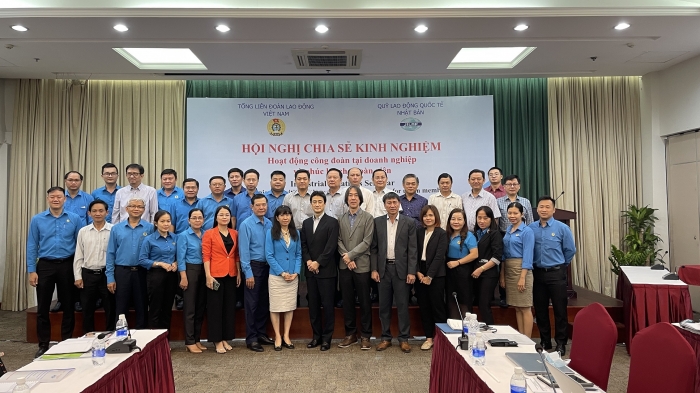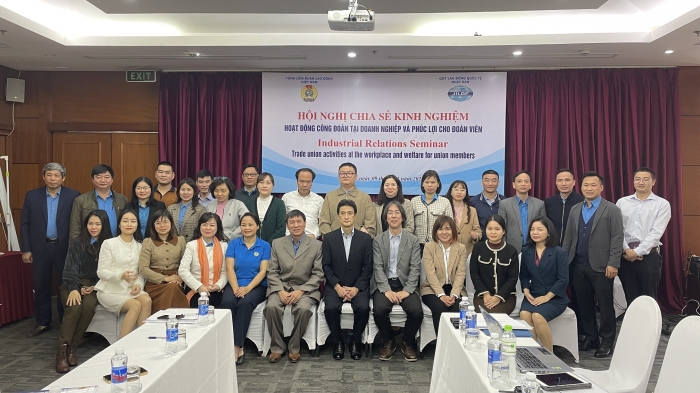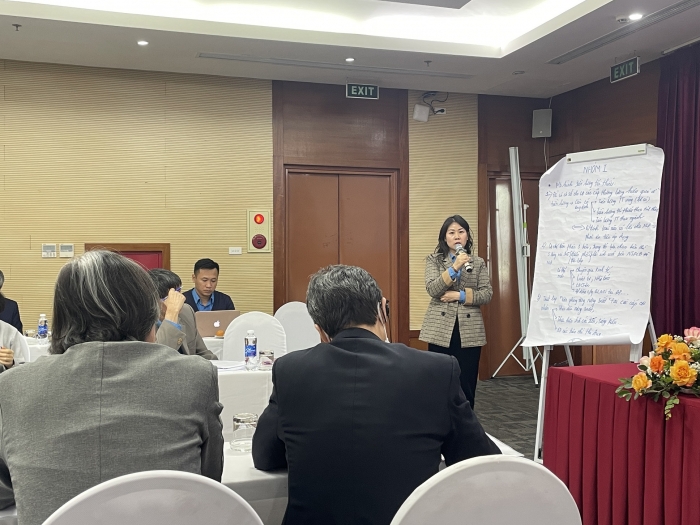VGCL/JILAF Seminars on Industrial Relations (IR) and Labour Policy in Vietnam
On January 9 and January 11, the Japan International Labour Foundation (JILAF), together with the Vietnam General Confederation of Labour (VGCL), held seminars on industrial relations and labour policy in Hanoi and Ho Chi Minh City, Vietnam. The seminars were attended by a total of fifty five people, including the leaders of each member organization.
At the beginning of the seminars, Deputy Director Quan of the VGCL’s Policy and Legal Affairs Bureau, made opening remarks on behalf of the VGCL by stating that learning about Japan’s industrial relations, employee benefits and social security for workers is very beneficial for Vietnam. In addition, Executive Director Motobayashi of JILAF also made opening remarks by expressing his joy and gratitude for being able to hold face-to-face seminars on industrial relations once again after three years, and hoping for the seminars to be meaningful.
Next, Executive Director Motobayashi gave a lecture on matters such as Japan’s constructive industrial relations, the history of Japan’s labour movements, and employee benefits and safety nets for Japan’s trade union members. In response, participants asked questions about a variety of matters, including (1) the process for determining minimum wage, (2) labour agreements when there are multiple trade unions in one company, (3) specific employee benefits that can be obtained by negotiating with a company, and (4) support for union members in the event of a disaster, to which appropriate answers were given.
In addition, Deputy Director Quan gave a report on matters such as industrial relations within companies and employee benefits in Vietnam. During this, he touched on the impact of various world situations on the workers in Vietnam, and the possibility of a future rise in the number of in-company unions due to the freedom of association. He also shared that VGCL has a policy of putting effort into organizing not only those within companies, but also informal sector workers, and providing generous support to all workers, and expressed the importance of developing human resources for that policy, etc.
Afterwards, a group discussion was carried out on building constructive industrial relations, improving working conditions, and enhancing employee benefits. The participants then gave presentations stating that they will strengthen their role as workers’ representatives (collective bargaining, welfare for union members, etc.), improve working conditions for union members through discussions with companies, create a database of union members’ opinions and reflect them in policies, and strengthen dialogue with the government and companies to enhance their country’s social security and corporate employee benefits, etc.
At the end of the seminars, Executive Director Motobayashi made closing remarks stating that he hopes Japan’s expertise will help improve the working environment and livelihoods of workers in Vietnam. Lastly, Deputy Director Quan closed the seminars by thanking the participants for their active participation, and expressing his hope for all participants to immediately apply what they have learnt over the days about constructive industrial relations and the role of trade unions in the workplace.



